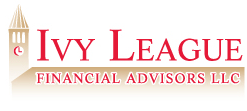How to Choose a Financial Advisor
Distinguishing among so many people claiming to be financial planners, financial advisors, financial counselors, and wealth managers is difficult. How do you know when you’ve found someone who can really help you?
Your selection should consider an advisor’s credentials, form of compensation, disciplinary record, ability to produce comprehensive financial plans, and commitment to a fiduciary standard.
Financial Advisor Credentials
There are more than 100 professional designations in the financial planning industry, but only a few of them truly indicate the training to do broad-based financial planning. All of those fancy letters after a planner’s name may be significant, or they may just be a way of making the advisor sound more competent than he or she really is. The most reliable certifications are:
Certified Financial Planner®. The most respected mark of distinction for financial planners. Signifies education and training across a wide range of financial planning subjects, as well as adherence to a code of ethics. Ivy League Financial Advisors founder Christopher Brown is a CFP® designee.
CPA®/PFA. Granted to Certified Public Accountants who have completed additional training to expand their knowledge to personal finance.
Chartered Financial Consultant©. Advanced training for financial professionals who want to extend their knowledge so that they can deliver comprehensive services.
Advisor Compensation
Ivy League Financial Advisors operates solely as a Fee-Only financial advisor. Fee-Only advisors minimize conflicts of interest because the advisor does not receive compensation from any person or company, except his or her client. That’s why, for many years, consumer advocates have recommended Fee-Only advisors.
Many financial advisors accept a combination of fees from clients and commissions from providers of financial products. These fee-based or commissioned advisors inevitably face conflicts between recommending a financial product that is best for the client (or suggesting that the client not purchase any financial product) and recommending a financial product that brings the biggest commission.
Learn An Advisor's Disciplinary Record
Nobody wants to work with a dishonest advisor, regardless of the advisor’s form of compensation. Although there are no foolproof ways of ensuring the advisor is honest, there are numerous ways of tracking down information that will significantly increase your confidence in the integrity of the advisor you select:
- A Registered Investment Advisor (RIA) is required to have a Form ADV, a document that is prepared according to regulations developed by the Securities and Exchange Commission (SEC). The Form ADV must be made available to every prospective client. The Form ADV outlines an advisor’s business, including compensation, experience, service offerings, and any disciplinary history. Ivy League Financial Advisors’ ADV can be found here. To learn what to look for in the Form ADV, visit this website.
- SEC Investment Adviser Public Disclosure website. This resource was created by the SEC and financial industry oversight organizations as a data base about disciplinary actions against advisors. Before hiring an advisor, visit this website.
- FINRA BrokerCheck provides disciplinary history about advisors who are not RIAs but who are registered representatives of a broker/dealer.
Comprehensive Financial Plans
True financial planning requires understanding all facets of personal finance—as well as developing the ability to use that knowledge through practical, hands-on experience with real clients. Many advisors provide only superficial analysis of your overall financial picture, while focusing on the area in which they are selling a product, such as insurance or investments.
Instead, you should select an advisor who will provide you with a comprehensive financial plan that include analysis of your cash flow and balance sheet, taxes, investments and asset allocation, retirement needs and targets, insurance, education funding for children, and estate planning. An advisor who is focused solely on investments or insurance is not providing a comprehensive service.
Fiduciary Standard
Federal and state law requires that Registered Investment Advisors (RIA) be held to a Fiduciary Standard. Ivy League Financial Advisors is an RIA firm. This requires that we act solely in the best interest of our clients at all times. We must disclose any conflict, or potential conflict, to clients prior to and throughout a business engagement and must adopt a Code of Ethics and fully disclose how they are compensated.
Unfortunately, only a small proportion of financial advisors are RIAs. Most so-called financial advisors are considered “broker/dealers” by the Securities and Exchange Commission (SEC). Brokers are not held to a Fiduciary Standard; they are held to the lower Suitability Standard. Under this standard, their investment recommendations only need to be “suitable” for a client, but not necessarily in the client’s best interest.
In fact, brokers are required by federal law to act in the best interest of their employer, not in the best interest of their clients. Because broker-dealers are not necessarily acting in your best interest, the SEC requires them to add the following disclosure to your client agreement. Read this disclosure, and decide if this is the type of relationship you want to dictate your financial security:
“Your account is a brokerage account and not an advisory account. Our interests may not
always be the same as yours. Please ask us questions to make sure you understand your rights
and our obligations to you, including the extent of our obligations to disclose conflicts of interest
and to act in your best interest. We are paid both by you and, sometimes, by people who
compensate us based on what you buy. Therefore, our profits, and our salesperson’s
compensation, may vary by product and over time.”
If you have questions about how a financial advisor should work for you, please contact us.
To read more about how to select a financial advisor, visit the website of the National Association of Personal Financial Advisors.

